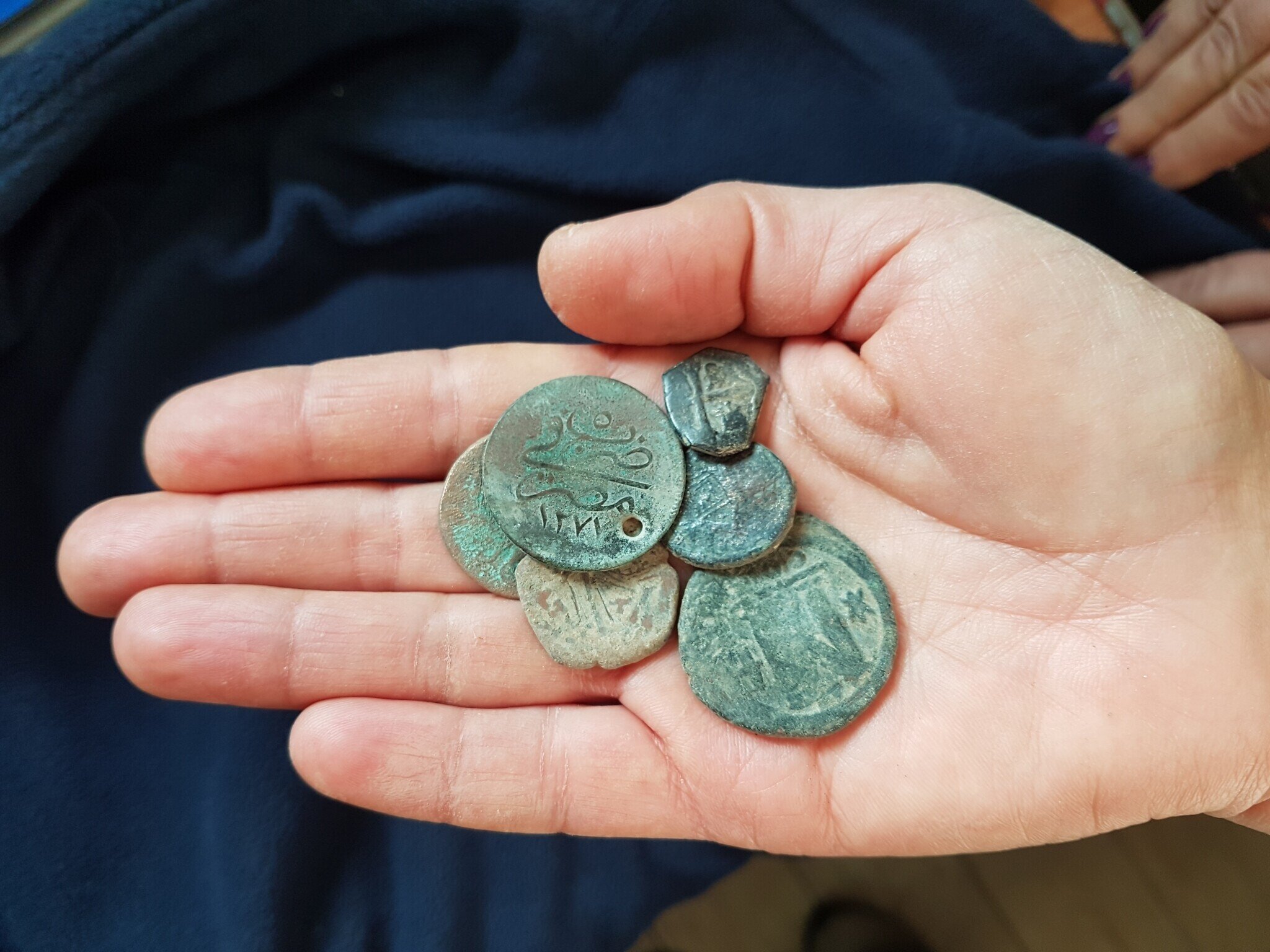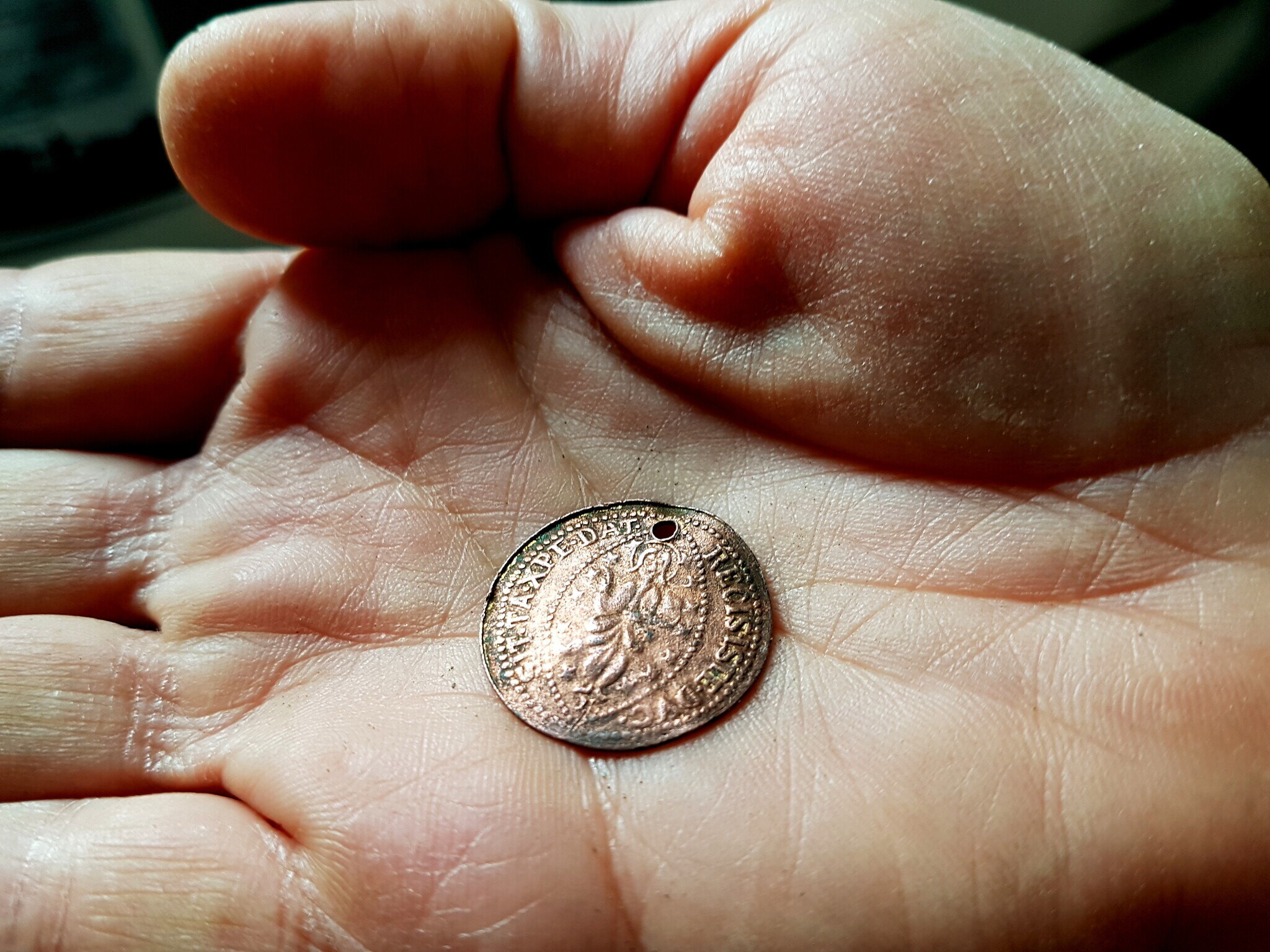Israel Antiquities Authority recovers hundreds of ancient coins from the home of known antiquities thief.
The Israel Antiquities Authority’s Theft Prevention Unit has had its eyes on a resident of Kfar Kana for some time. Twice, he was caught using a metal detector without a permit and digging at antiquities sites without authorization. On both of these occasions the perpetrator was tried in court, convicted, and fined. Nevertheless, the robber was undeterred. In collaboration with the Kfar Kana Police department, the IAA’s Theft Prevention Unit arrested the suspect for questioning, and searched his house. As a result, they recovered a cache of 232 ancient coins.
The IAA’s investigators identified coins from the Persian, Hellenistic, Roman, Byzantine and Ottoman periods, representing about 2000 years of history. According to Dr. Eitan Klein, the Theft Prevention Unit’s deputy director, coins are of particular scientific value because they can be used to date antiquities sites with great accuracy. Klein says, “a coin stolen from an antiquities site is an important piece of information that will be missing when archaeologists want to carry out an archaeological excavation, and, in fact, is a missing part of the historical puzzle of Israel.”
Unfortunately, the IAA is witnessing a growing number of civilians acquiring metal detectors and searching for coins without a permit. These thefts severely damage the scientific value of antiquity sites. In light of this, the IAA is working to tighten regulations surrounding metal detector permits, and calling on the courts to help prevent this behavior by taking charges against antiquity robbers seriously.
“It is important for the public to know that any excavation at an antiquities site or discovery of antiquities, even in private areas, requires immediate reporting to the Israel Antiquities Authority; that it (the artifact) belongs to all of us.”
Learn how you can support the IAA Theft Prevention Unit's efforts to stop antiquities looting.
Abigail VanderHart, FIAA Contributor





